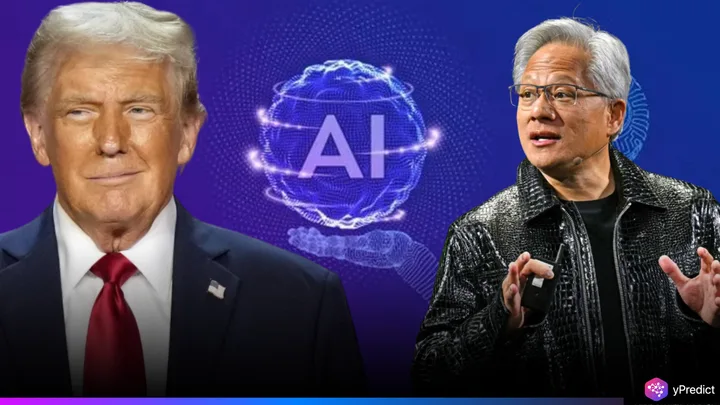
At the Computex tech event in Taipei, Nvidia CEO Jensen Huang praised U.S. President Donald Trump’s move to relax AI chip export curbs. Huang called the earlier Biden-era controls a failure that damaged American tech giants. He noted that Nvidia’s share of China’s AI chip market dropped from 95% to 50% due to those restrictions. The rollback comes as China aggressively develops its own AI hardware. Huang’s comments highlight growing pressure on U.S. leaders to rethink their approach. “The assumptions behind the AI diffusion rule were fundamentally flawed,” Huang said during the press conference.
Trump’s New Approach Aims to Restore U.S. Tech Reach
The original U.S. rule, introduced under President Biden, blocked advanced AI chip export to China by dividing countries into three control tiers. China was entirely restricted, prompting local firms like Huawei to ramp up chip development. Huang said the curbs didn’t stop research but pushed it away from American suppliers. Trump’s proposed plan would replace the rigid system with a flexible licensing model between governments. “President Trump realizes it’s exactly the wrong goal,” Huang said, referencing the effort to isolate China technologically. Nvidia hopes this shift will allow U.S. firms to re-enter a crucial and growing market.
China’s Rise Spurs Fierce Competition and Billions in Losses
Huang described competition in China as “intense,” with more than half the world’s AI researchers based there. Many are now using Chinese-designed chips due to the U.S. ban. Nvidia recently took a $5.5 billion charge after restrictions affected its H20 chip, a popular product in China. Huang estimated the total damage from export limits could reach $15 billion. Meanwhile, the Chinese AI market could hit $50 billion in 2026, representing a significant missed opportunity for U.S. firms. Nvidia is working on a modified version of its Blackwell chip, using slower memory to stay within legal bounds. Still, pressure to innovate around trade rules remains high.
Can U.S. Tech Reclaim China Market with Export Rule Changes?
The rollback raises new questions about how global AI competition should be handled. China has urged the U.S. to stop “discriminatory” chip guidance. The country warned of countermeasures if American restrictions continue. Huang stressed that scientific research doesn’t pause for politics and praised the global nature of innovation. “They would love for us never to go back,” he said of Chinese rivals. For Nvidia and others, returning to China would mean billions in regained revenue. As trade officials craft new licensing deals, the world watches how U.S. tech will navigate this next phase.






